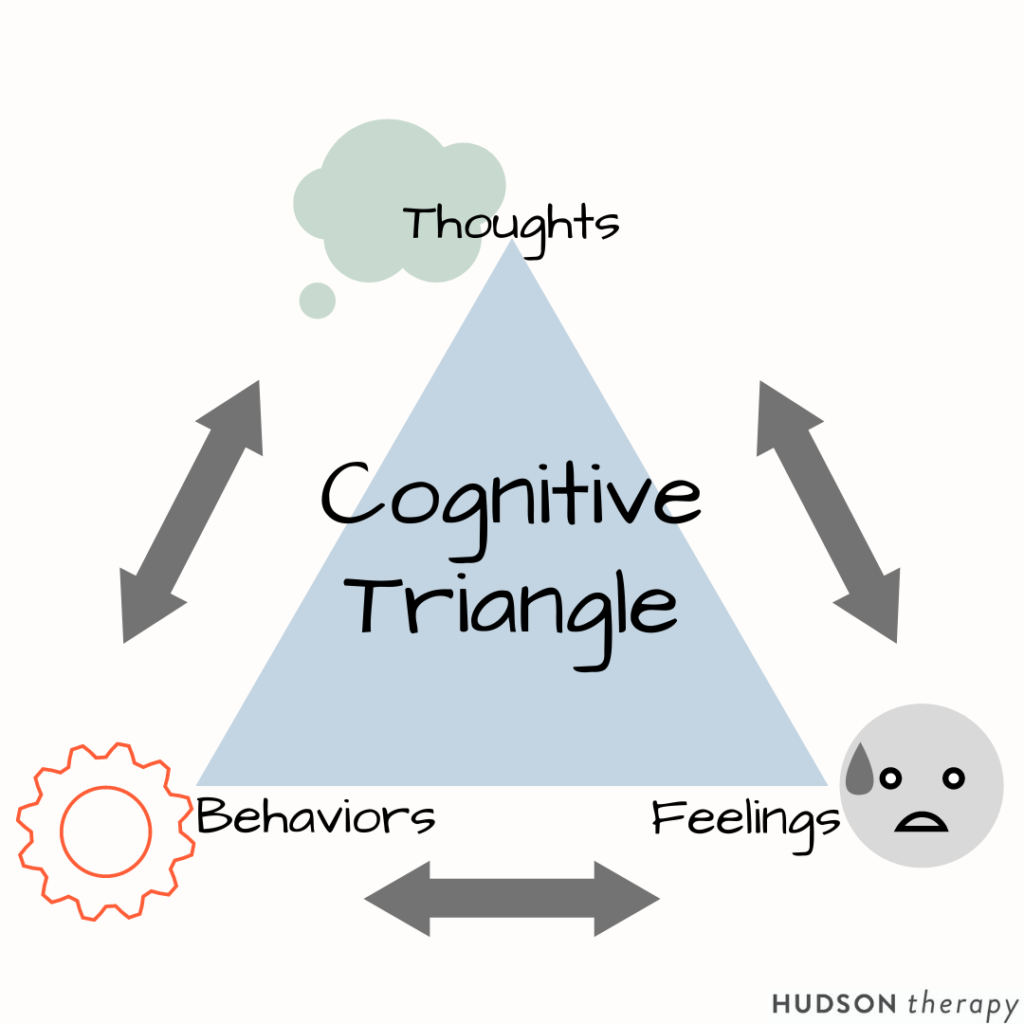Cognitive Behavioral Therapy (CBT) is a widely used and effective form of psychotherapy that focuses on identifying and changing negative thought patterns and behaviors.
One of the unique and powerful tools that therapists often use in CBT is quotes. These quotes can serve as a source of inspiration, motivation, and reflection for clients.
In this article, we will explore how therapists use quotes to challenge and change negative thought patterns, and how these quotes can be integrated into the therapeutic process.
CBT: Your Brain’s Reboot
Think of your brain as a computer. Sometimes it gets stuck in a negative loop, right? That’s where CBT comes in. It’s like hitting refresh on your brain. CBT helps you see how your thoughts, feelings, and actions are all connected. By changing the way you think, you can change how you feel and what you do.
The Role of Quotes in CBT
Quotes can be a powerful tool in CBT for several reasons:
- Inspiration and Motivation: Quotes can provide clients with a sense of hope and encouragement. They can serve as reminders that change is possible and that others have successfully overcome similar challenges.
- Reflection and Insight: Quotes can prompt clients to reflect on their own thoughts and behaviors. They can help clients gain new perspectives and insights into their own experiences.
- Challenging Negative Thoughts: Quotes can be used to directly challenge and counter negative thought patterns. They can provide alternative, more positive ways of thinking.

How Therapists Use Quotes in CBT
1. Identifying Negative Thought Patterns
One of the first steps in CBT is identifying negative thought patterns. Therapists often use quotes to help clients recognize these patterns. For example, a quote like “You are not your thoughts” can help clients understand that their negative thoughts do not define them.
2. Challenging Negative Thoughts
Once negative thought patterns have been identified, therapists use quotes to challenge these thoughts. For example, a client who believes they are a failure might be presented with a quote like “Failure is not the opposite of success; it’s part of success.”
This quote can help the client see failure as a learning opportunity rather than a definitive judgment of their worth.
3. Replacing Negative Thoughts with Positive Ones
Therapists also use quotes to help clients replace negative thoughts with more positive and realistic ones. For example, a client who struggles with self-doubt might benefit from a quote like “Believe you can and you’re halfway there.”
This quote can encourage the client to adopt a more positive and empowering mindset.
Examples of Quotes Used in CBT
Inspirational Quotes
- “The only limit to our realization of tomorrow will be our doubts of today.” – Franklin D. Roosevelt
- “You have power over your mind – not outside events. Realize this, and you will find strength.” – Marcus Aurelius
Reflective Quotes
- “The happiness of your life depends upon the quality of your thoughts.” – Marcus Aurelius
- “We cannot solve our problems with the same thinking we used when we created them.” – Albert Einstein
Challenging Negative Thoughts
- “Change your thoughts and you change your world.” – Norman Vincent Peale
- “It isn’t what you have, or who you are, or where you are, or what you are doing that makes you happy or unhappy. It is what you think about.” – Dale Carnegie
Integrating Quotes into the Therapeutic Process
1. Homework Assignments
Therapists often assign quotes as part of homework assignments. Clients might be asked to reflect on a particular quote and write about how it relates to their own experiences.
This can help reinforce the lessons learned in therapy and encourage clients to apply these insights in their daily lives.
2. Journaling
Journaling is a common technique in CBT, and quotes can be a valuable addition to this practice.
Clients might be asked to choose a quote that resonates with them and write about how it applies to their current situation. This can help clients gain deeper insights and develop a more positive mindset.
3. Mindfulness and Meditation
Quotes can also be used in mindfulness and meditation practices. Clients might be encouraged to meditate on a particular quote, allowing its message to sink in and influence their thinking.
This can help clients develop a more mindful and present-focused approach to their thoughts and emotions.
The Impact of Quotes on Clients
1. Increased Motivation
Quotes can provide clients with a sense of motivation and encouragement. They can serve as reminders that change is possible and that others have successfully overcome similar challenges.
This can help clients stay committed to the therapeutic process and continue working towards their goals.
2. Enhanced Self-Awareness
Quotes can prompt clients to reflect on their own thoughts and behaviors, leading to increased self-awareness.
By gaining new perspectives and insights, clients can develop a deeper understanding of their own experiences and identify areas for growth and improvement.
3. Positive Mindset
Quotes can help clients develop a more positive and empowering mindset.
By challenging negative thoughts and replacing them with more positive and realistic ones, clients can cultivate a healthier and more optimistic outlook on life.
4. Group Therapy Sessions
In group therapy settings, quotes can be used to foster discussion and shared insights among participants.
A therapist might introduce a quote at the beginning of a session and encourage group members to share their interpretations and personal experiences related to the quote.
This can create a sense of community and mutual support, as participants realize they are not alone in their struggles.
5. Visual Reminders
Therapists often encourage clients to use quotes as visual reminders in their daily lives.
Clients might write down meaningful quotes and place them in visible locations, such as on their mirrors, desks, or refrigerators.
These visual reminders can serve as constant sources of inspiration and motivation, helping clients stay focused on their therapeutic goals.
6. Cognitive Restructuring
Cognitive restructuring is a core component of CBT, involving the identification and modification of distorted thinking patterns. Quotes can be particularly effective in this process.
For example, a client who frequently engages in all-or-nothing thinking might benefit from a quote like “Life is not black and white; it’s a million gray areas.”
This quote can help the client recognize the complexity of situations and adopt a more balanced perspective.
Practical Applications of Quotes in CBT
1. Daily Affirmations
Therapists might encourage clients to use quotes as daily affirmations. By repeating positive and empowering quotes each day, clients can reinforce healthier thought patterns and boost their self-esteem.
For example, a client struggling with self-worth might use the affirmation, “I am enough just as I am.”
2. Cognitive Behavioral Worksheets
CBT often involves the use of worksheets to help clients identify and challenge negative thoughts. Quotes can be integrated into these worksheets as prompts for reflection and discussion.
For instance, a worksheet on challenging negative self-talk might include a quote like “You are braver than you believe, stronger than you seem, and smarter than you think.”
Clients can then reflect on how this quote applies to their own experiences and write down alternative, more positive thoughts.
3. Role-Playing Exercises
In role-playing exercises, therapists can use quotes to help clients practice new ways of thinking and behaving.
For example, a client who struggles with assertiveness might role-play a scenario where they use a quote like “Speak your mind, even if your voice shakes” to assertively express their needs and boundaries.
The Therapeutic Benefits of Quotes
1. Emotional Regulation
Quotes can help clients regulate their emotions by providing a sense of comfort and reassurance.
During moments of distress, clients can turn to quotes that resonate with them and find solace in their words.
For example, a client experiencing anxiety might find comfort in the quote, “This too shall pass.”
2. Building Resilience
Quotes can also help clients build resilience by reminding them of their inner strength and capacity for growth.
A quote like “What lies behind us and what lies before us are tiny matters compared to what lies within us” can inspire clients to tap into their inner resources and persevere through challenges.
3. Enhancing Therapeutic Alliance
The use of quotes can enhance the therapeutic alliance between the therapist and the client.
By sharing meaningful quotes, therapists can demonstrate empathy and understanding, creating a sense of connection and trust.
This can make clients feel more supported and engaged in the therapeutic process.
Conclusion
Quotes are a versatile and impactful tool in Cognitive Behavioral Therapy (CBT). They can inspire, motivate, and challenge clients, helping them to identify and change negative thought patterns.
By integrating quotes into various aspects of therapy, such as group sessions, visual reminders, cognitive restructuring, daily affirmations, worksheets, and role-playing exercises, therapists can provide clients with valuable insights and encouragement.
Ultimately, the use of quotes in CBT can promote emotional regulation, build resilience, and enhance the therapeutic alliance, leading to more effective and meaningful therapeutic outcomes.
Also Read This:
- How Much Quote Sharing Online Has Changed In Digital Age
- How Maintaining A Quote Journal Can Improve Mental Well-Being
- Can’t Focus in the A.M.? : The Simple (But Powerful) Morning Ritual
- The Art of Creating Your Own Quote Art: Unleash Your Inner Artist
- Analyzing How Visual Presentation Of Quotes Affects Their Impact
- How Gratitude Hacks Your Brain for Happiness and Even Better Sleep!
- How To Creating a Positive Morning Routine Using Motivational Quotes
- Digital vs Traditional Methods of Sharing Blessings: The Blessings Revolution
- How To Write Inspirational Quotes: Tips For Crafting Uplifting Messages
- How To Use Inspirational Quotes To Achieve Goals
- The Psychology Of Inspirational Quotes: Why Do They Motivate Us?
- 71+ Positive Sunday Blessings or Quotes for a Fantastic Week
- 66+ Electrifying Positive Monday Blessings for a Thriving Week






